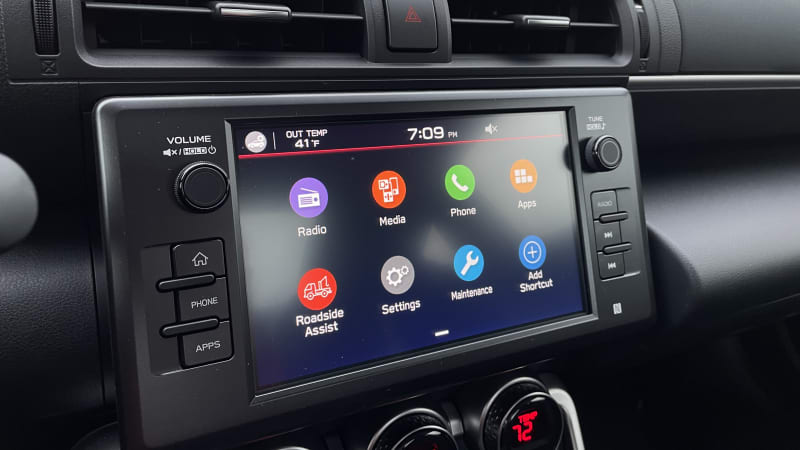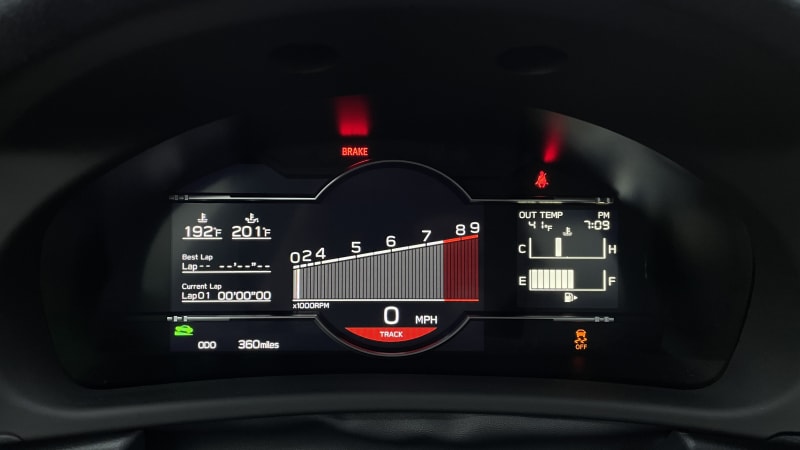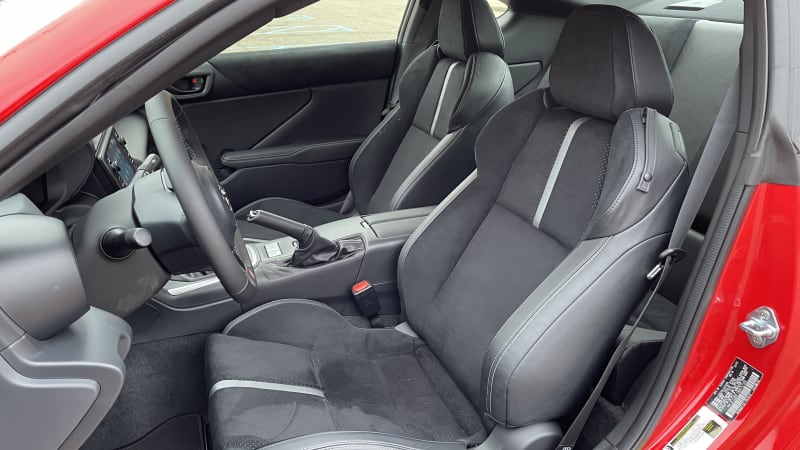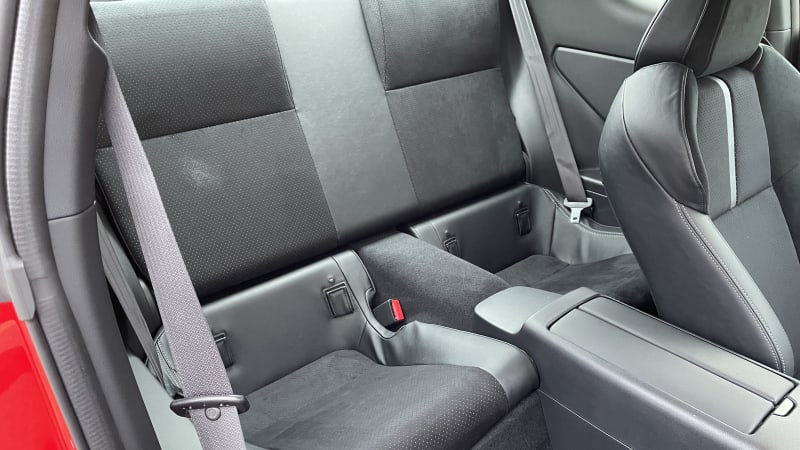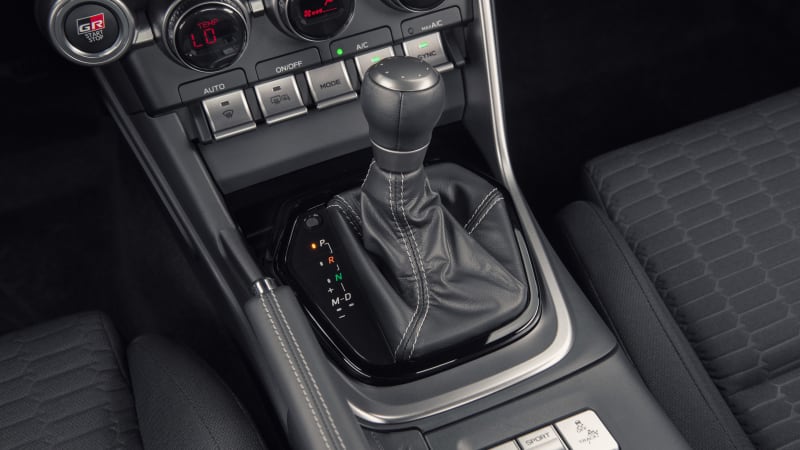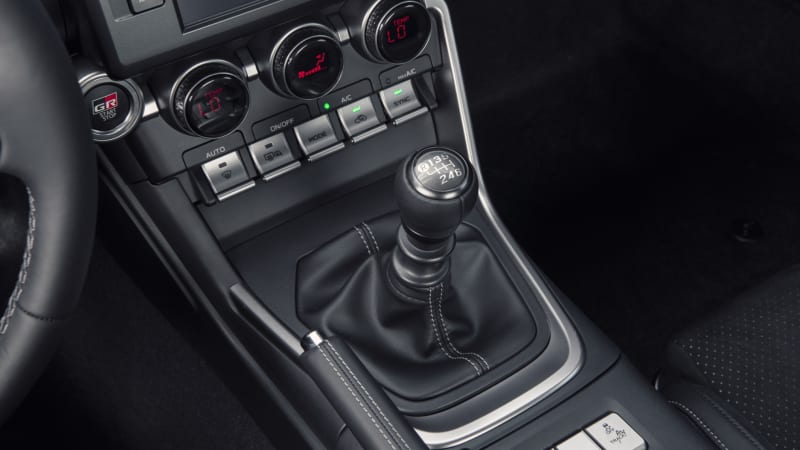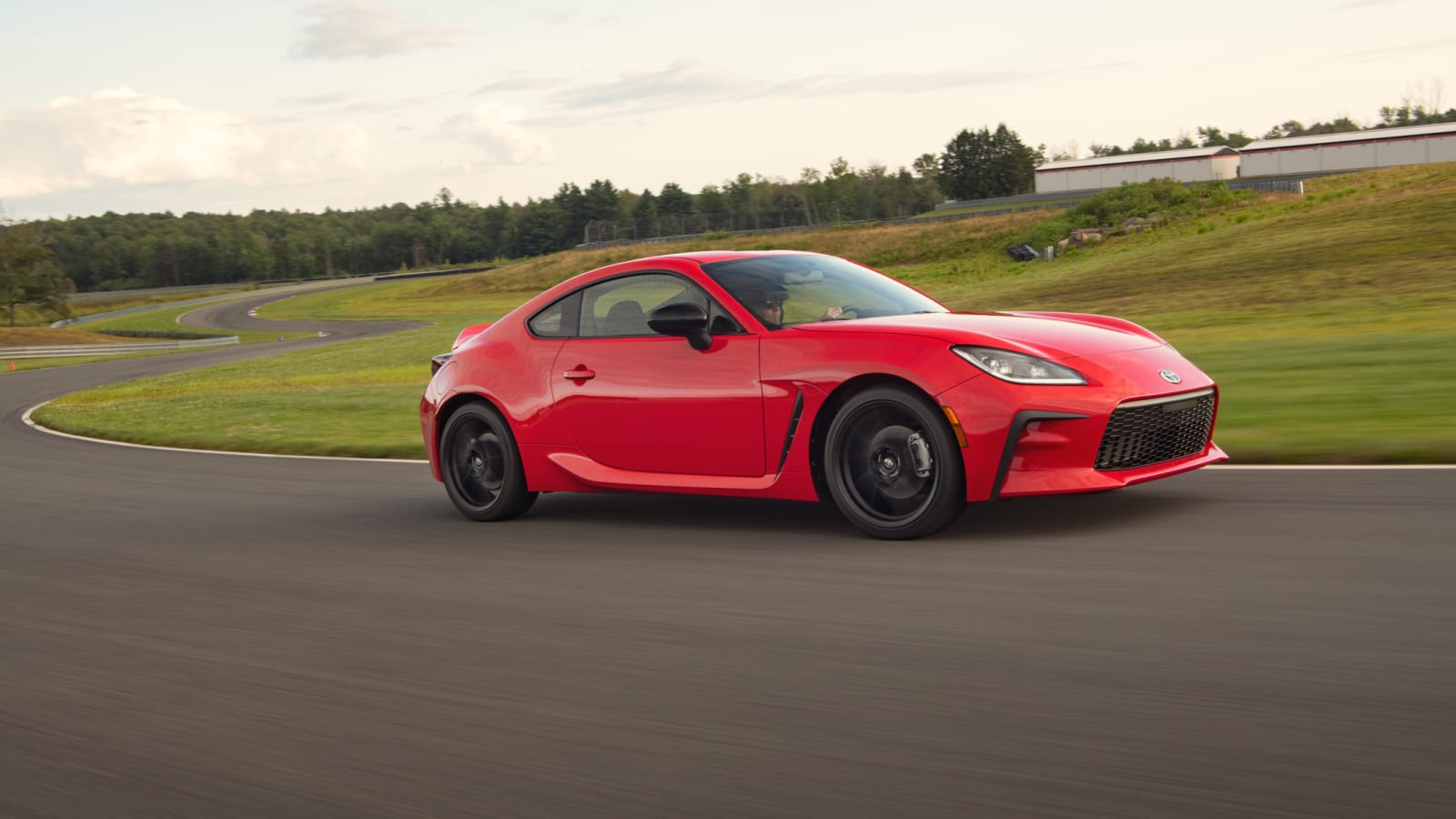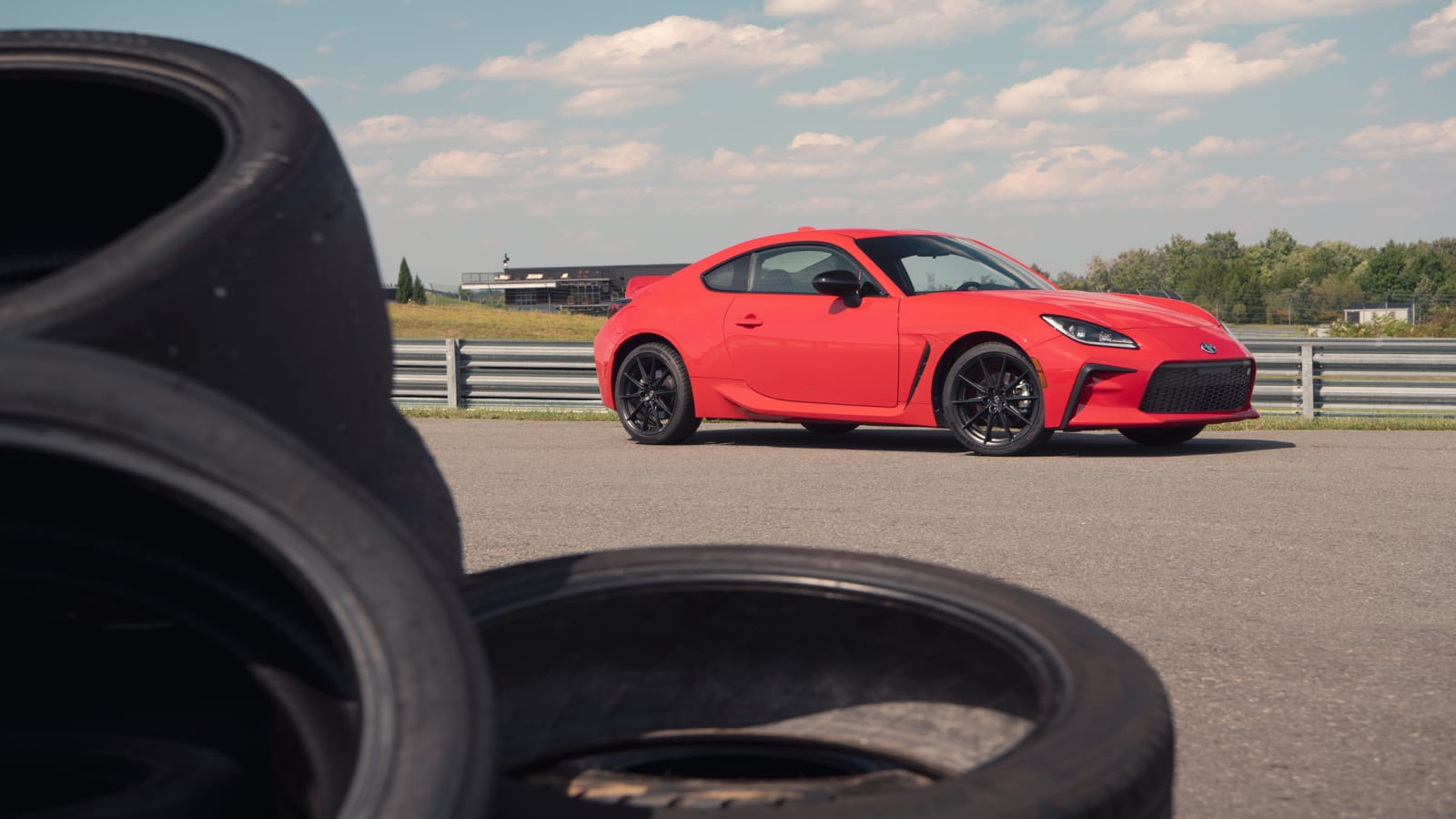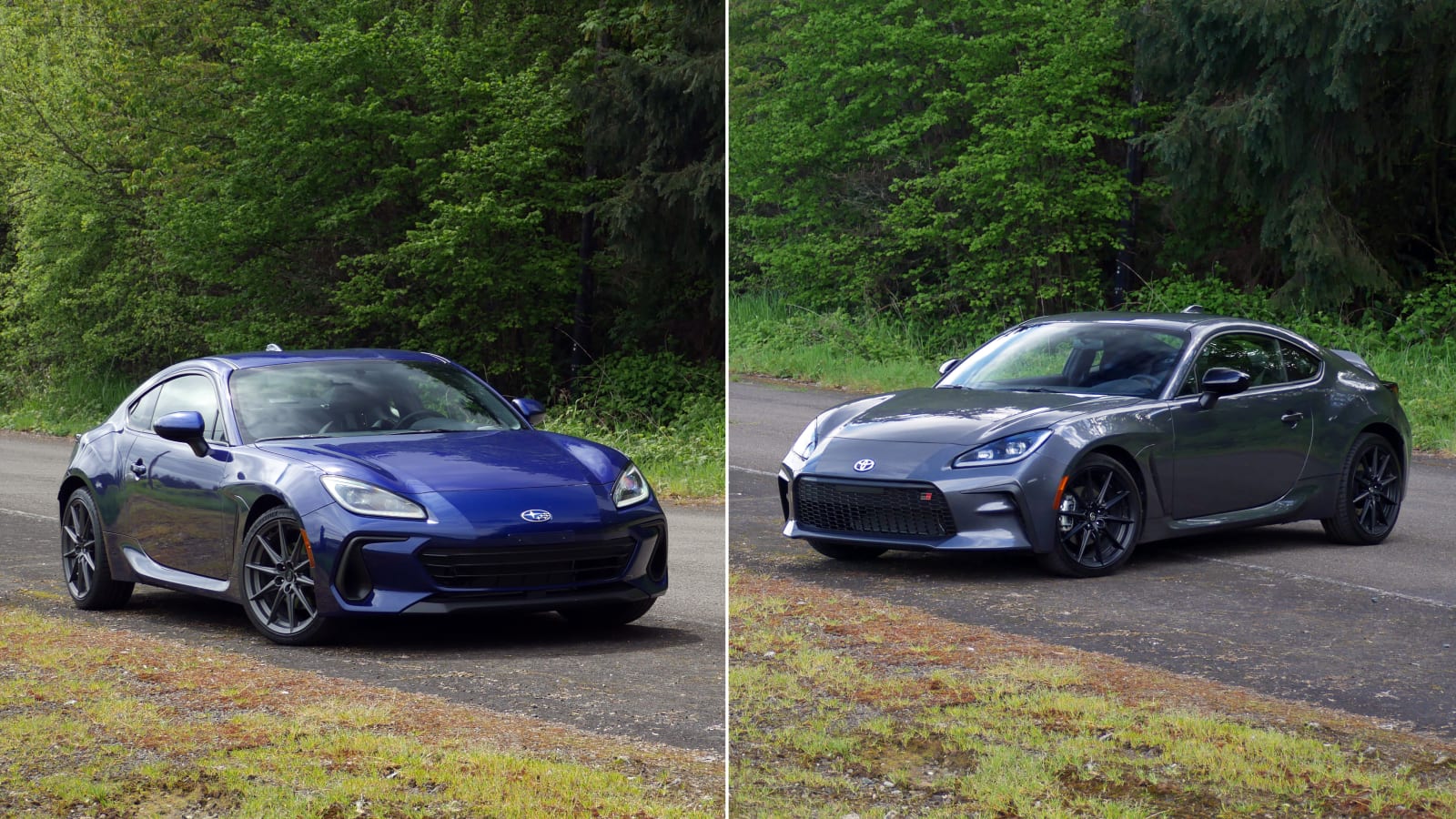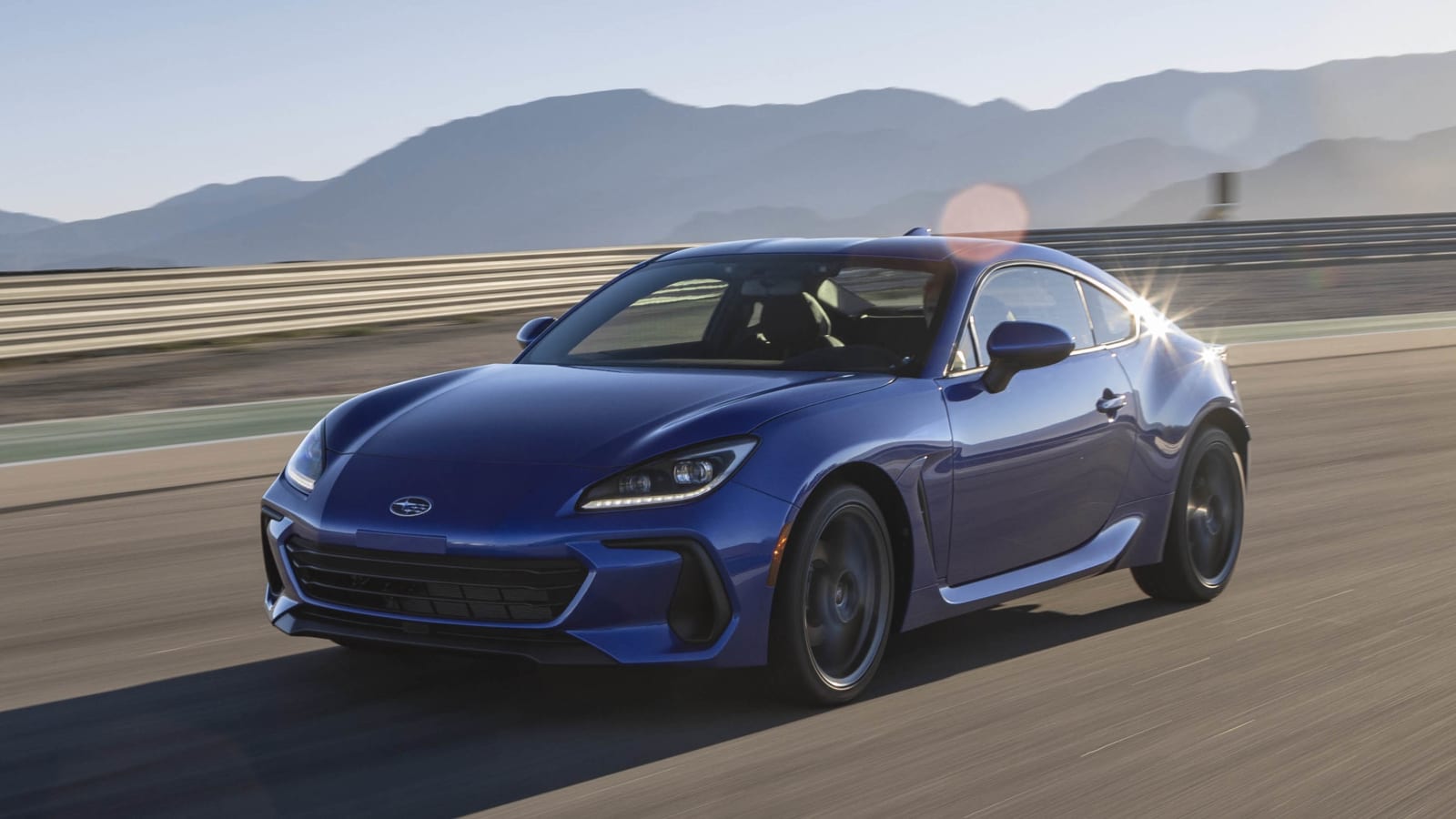The 2022 Toyota GR86 might not look that different from the car it replaces, and its underlying platform is carried over. It’s still the result of a joint venture with Subaru, which did the lion’s share of the engineering, right down to the oh-so-Subaru boxer engine. But you know what? Who cares! The GR86 is still a hoot to drive, gracing this planet with something it has a true scarcity of: a relatively inexpensive, rear-wheel-drive sport coupe. Plus, it’s actually massively improved. The engine might still be a boxer, but it’s a substantially better boxer, with greater low- and mid-range power that makes it far more appropriate for a sporty car. The interior has also been given a welcome overhaul in terms of design, materials quality, technology and storage.
So it’s definitely better and definitely a lot of fun. What’s not to love? Well, the Subaru BRZ has a noticeably better ride, for one, and we would recommend it first as a result. Beyond that, the automatic may be superior to a Miata’s, but it still lacks the smarts and responses of a dual-clutch automated manual. You’ll also obviously be sacrificing some practicality compared to similarly priced four-door hot hatches by going with a two-door car with a tiny back seat. Ultimately, though, the GR86 and BRZ twins are two of our favorite cars, and we’re thrilled they’ve lived to see another generation. We wish there were more cars like ’em.
Interior & Technology | Passenger & Cargo Space | Performance & Fuel Economy
What it’s like to drive | Pricing & Trim Levels | Crash Ratings & Safety Features
What’s new for 2022?
The GR86 and its Subaru BRZ sibling were redesigned and thoroughly overhauled for 2022. The key difference is the engine: It displaces 2.4 liters, up from 2.0, resulting in more horsepower and torque everywhere in the power band. You can read more about what’s new in our GR86 first drive review, as well as our BRZ first drive.
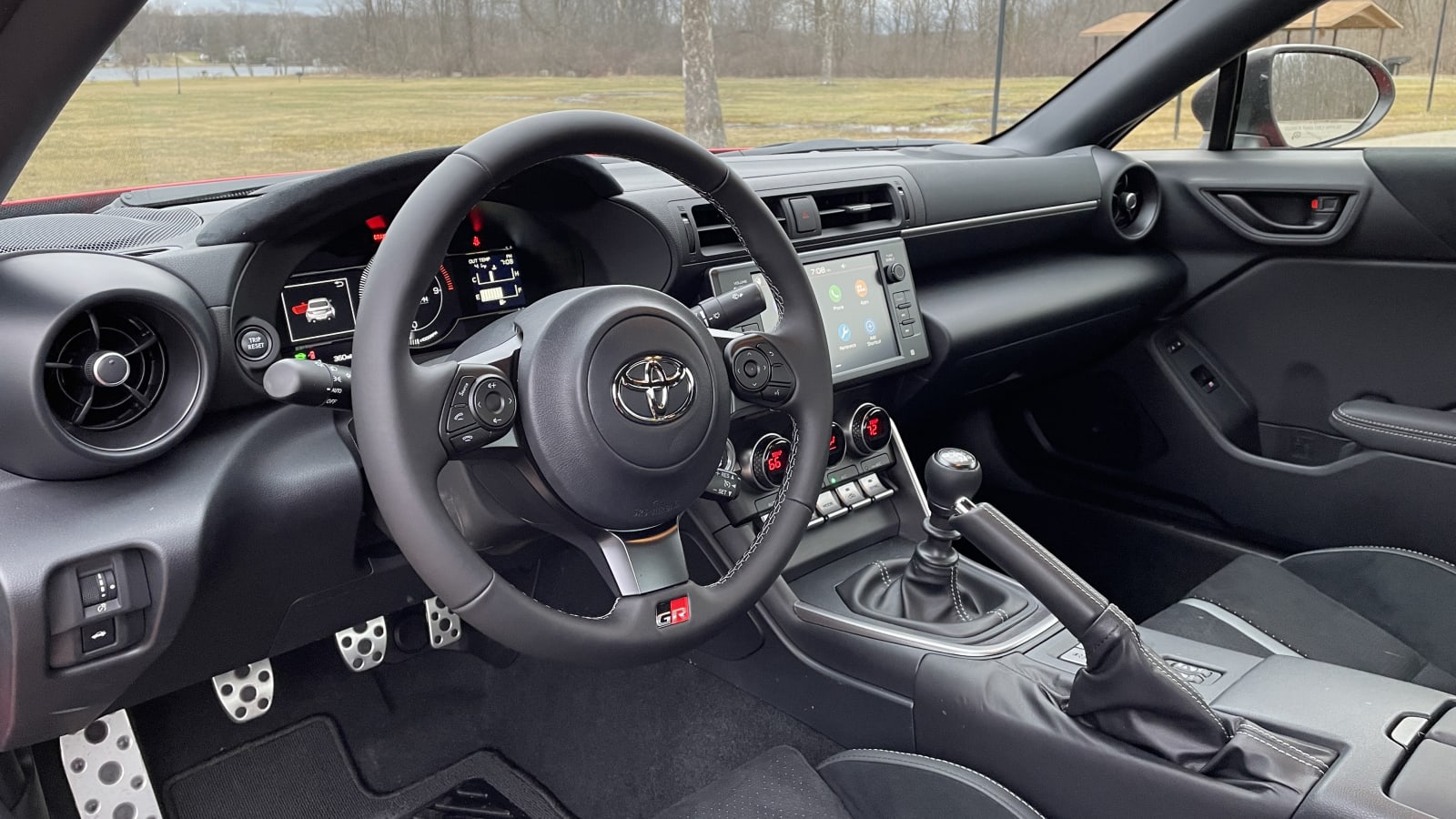
What are the GR86 interior and in-car technology like?
For the most part, the GR86 has a Subaru interior with a Toyota badge placed on the steering wheel. All the buttons, switches and even the infotainment system are consistent with what you’d find in a Crosstrek, for example. This is merely a fact rather than a problem. All those buttons and switches are perfectly acceptable, while Subaru’s touchscreen infotainment system is arguably superior to what you’d find in most Toyotas. It’s also a clear upgrade over the last 86’s touchscreen.
The GR86/BRZ has also been given a significant interior storage upgrade. You no longer have to stuff your phone into the too-small bin forward of the shifter as the USB port has been relocated into the center console’s cupholder bin. That bin is also now covered with padded doors, resulting in improved security and greater elbow comfort. Now, putting your phone in there does remove at least one cupholder, but to counter this, Subaru/Toyota redesigned the door’s grab handle, resulting in a more functional cupholder in the door. Unlike most other vehicles, you sit so low in the GR86 that the door cupholder actually falls conveniently at your hand. Automatic cars also gain an additional cupholder between the shifter and storage bin.
How big is the GR86?
The GR86’s wheelbase (101.4 inches), overall length (167.9 inches) and curb weight (2,811-2,868 pounds) are all near-as-makes-no-difference the same as the outgoing model. That’s the result of the carry-over platform.
Compared to most cars, the GR86 is tiny, and its two-door, 2+2 interior is obviously less practical than a similarly priced four-door hot hatch. However, compared to the two-seat Mazda MX-5 Miata and Toyota’s own Supra, the GR86 is actually spacious. Its back seat might be fairly useless for human transport, but its presence grants the cabin extra versatility and storage on longer trips. It’s also pretty good at carrying small- to medium-sized dogs, and for those up front, the lack of a rear bulkhead means it’s more likely for taller folks to find a comfortable seating position (though we do wish there was a way to tilt up the front of the driver seat for longer legs, rather than just the back of it for shorter ones).
Fold down the one-piece seat back, and you also usefully expand cargo capacity as we discovered in our BRZ luggage test. Even with the seat raised, the 6.26-cubic-foot trunk is substantially better than what you’d find in a Miata and is capable of carrying three suitcases.
What are the GR86 fuel economy and performance specs?
The GR86 features a 2.4-liter boxer-four-cylinder supplied by Subaru that produces 228 horsepower and 184 pound-feet of torque. There is then an option of Toyota-sourced transmissions: a six-speed manual and a six-speed automatic that features a Sport mode for sharper responses as well as paddle shifters. Toyota says it’ll go from zero to 60 mph in 6.1 seconds with the manual and 6.6 seconds with the automatic.
EPA fuel economy stands at 22 mpg city, 27 mpg highway and 22 mpg combined with the manual. It goes up to 21/31/25 with the automatic.
What’s the GR86 like to drive?
The new engine makes a world of difference. There’s far more low-end torque, while mid-range power is no longer obviously deficient. The engine also sounds pleasingly zingy as you crest the 5,000 rpm mark, encouraging you to push the little boxer harder (or at least keep the car in a lower gear). In short, the engine feels more appropriate for a sport coupe and doesn’t beg for a turbocharger.
The manual’s clutch is easy to modulate, with a precise engagement and a pedal effort that won’t fatigue your leg too badly in traffic, but that is hefty enough to feel appropriate for a performance application. There is no automatic rev-match functionality, but the pedals are placed close enough that heal-toe downshifts are easy. The throttle is also well-calibrated for the task. The shifter is similarly precise, with a mechanical feel. As for the automatic, it’s does a pretty good job of downshifting when getting back on the throttle or when you hit the brakes leading into a turn – provided you engage the car’s Sport mode. It’s still too eager to upshift, however, resulting in a lot of yo-yoing between gears. We found ourselves using the paddle shifters because of this. Or wishing we just had the manual.
From here, the GR86 and BRZ split. The Toyota has softer front springs and stiffer rear springs, plus cast-iron knuckles versus aluminum, a solid front antiroll bar versus a hollow one, and a rear antiroll bar mounted to the subframe rather than the body. The end result is a car that rides noticeably rougher – we grew tired of driving the GR86 around town, whereas we were totally fine in the Subaru. At the same time, if this firmer suspension tuning results in a handling advantage (and we’re literally not sure if it does), it’s a much smaller, tougher-to-detect difference than the ride quality. A less compliant rear end may also make it more susceptible to mid-corner bumps when driving on a winding road. A track? That’s a different story, but when it comes to the differences between BRZ and GR86, the suspension is it. And we think the Subaru has the advantage because of it.
What other Toyota GR86 reviews can I read?
2022 Toyota GR86 First Drive Review
Read more about the GR86’s many updates and what it’s like to drive on a track.
2022 Toyota GR86 vs Subaru BRZ / Manual vs Automatic Comparison
What the headline says, we drive a GR86 with an automatic back-to-back with a BRZ with a manual. Here’s what we found.
2022 Subaru BRZ First Drive Review
Check this out for a bit more information on how the BRZ differs from the GR86, plus a few unique insights.
What is the 2022 GR86 price?
There are four ways to get a 2022 GR86: base and Premium, each of which is available with the manual or automatic transmission. There are no factory options or packages beyond that, although the automatic does add on what is effectively the Subaru EyeSight suite of driver assistance tech (see Safety section below).
The Premium adds 18-inch wheels on Michelin Pilot Sport 2 tires (versus 17s on lesser rubber), a duck-bill rear spoiler, heated front seats, upgraded upholstery consisting of Ultrasuede bolsters and leather inserts, aluminum pedals, blind-spot and rear cross-traffic warning, and an eight-speaker sound system rather than six.
Prices include the $1,025 destination charge. You can a more thorough list of features here on Autoblog.
Base Manual: $28,725
Base Automatic: $30,225
Premium Manual: $31,325
Premium Automatic: $32,825
What are the GR86 safety ratings and driver assistance features?
If you want a manual transmission, you’re going to do without most driver assistance technologies. Only blind-spot and rear cross-traffic warning are available, and even then, are included on the Premium. Getting the automatic automatically includes what is effectively the Subaru EyeSight suite of driver assistance tech: forward and reverse automatic emergency braking, lane-departure warning, automatic high beams and adaptive cruise control.
The GR86 had not been crash-tested by a third party at the time of this writing.
Source: www.autoblog.com

